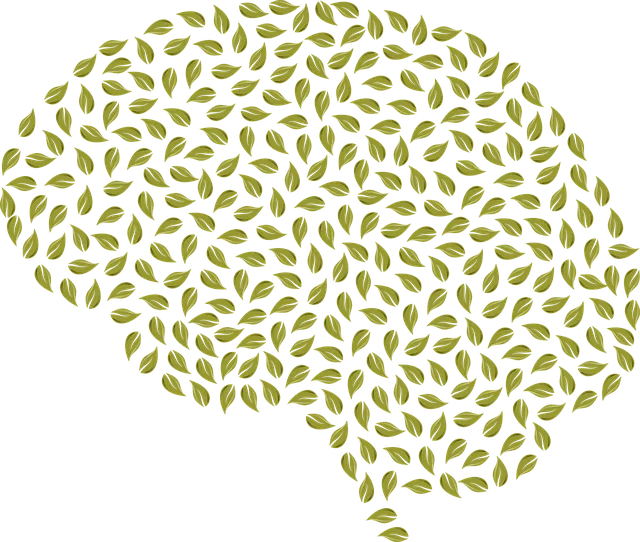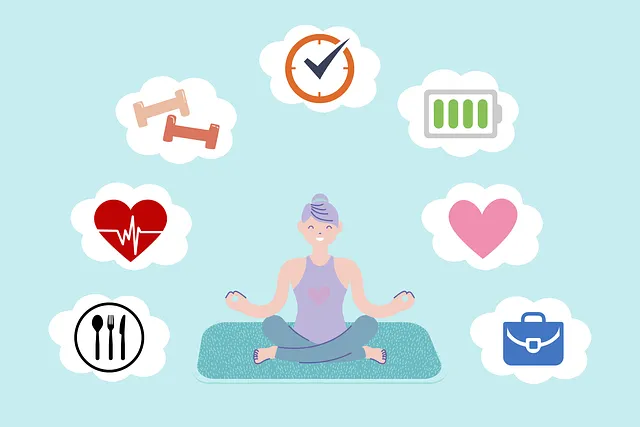In Longmont, where Kaiser provides mental health services, understanding RFM (Reach, Frequency, Money) is key to transforming care. This framework helps create personalized strategies, offering diverse programs like intensive support and community interventions based on engagement and resources. Kaiser's comprehensive approach goes beyond treatment, empowering residents with self-care tools and raising awareness through the Community Outreach Program. Effective resilience-building exercises tailored to local needs and embedded in existing activities enhance mental wellness, especially where Kaiser coverage is limited. Measuring success using RFM exercises includes tracking well-being, stress levels, and risk management improvements.
“In today’s digital era, mental health support is more critical than ever. This article explores how the Resource, Strengths, and Needs (RFM) model revolutionizes resilience building in Longmont, particularly through Kaiser’s comprehensive approach to mental healthcare services. We delve into identifying effective resilience-building exercises, strategies for seamless integration within community programs, and measuring success through impact evaluation. Understanding RFM and its significance is key to fostering a robust mental health landscape in Longmont.”
- Understanding RFM and its Significance in Mental Health Support
- Kaiser's Approach to Covering Mental Health Services in Longmont
- Identifying Resilience Building Exercises for Effective Implementation
- Strategies for Seamless Integration of RFM into Community Programs
- Measuring Success: Evaluating the Impact of RFM Exercises on Resilience
Understanding RFM and its Significance in Mental Health Support

In the realm of mental health support, Understanding RFM—Reach, Frequency, and Money (or resources)—is a game-changer. This simple yet powerful framework helps professionals assess and cater to individuals’ unique needs, especially in Longmont where Kaiser covers mental health services. By analyzing how often individuals engage with support systems (Reach) and the depth of their involvement (Frequency), along with an assessment of available resources (Money), RFM provides a holistic view. This approach ensures that self-care practices and empathy building strategies are tailored to prevent burnout, especially crucial in navigating today’s hustle and bustle world.
For instance, in Longmont, Kaiser’s mental health services might offer diverse programs catering to different RFM profiles. Those with high Reach and frequent engagement (high Frequency) may require advanced support to maintain their well-being, while those with limited resources (low Money) can benefit from accessible, community-based interventions. This personalized approach not only enhances resilience but also ensures that mental health support resonates with individuals’ real-life experiences, fostering a vibrant tapestry of care.
Kaiser's Approach to Covering Mental Health Services in Longmont

In Longmont, Kaiser’s Approach to Mental Health Services aims to bridge the gap between physical and psychological well-being. The healthcare provider offers a comprehensive suite of mental health services tailored to meet the unique needs of the community. Longmont residents often wonder, “Does Kaiser cover mental health?” Indeed, Kaiser’s robust network includes mental wellness support, ensuring accessible care for all. Their strategy involves not just treating symptoms but empowering individuals with self-care practices and tools like Mental Wellness Journaling Exercises, fostering a proactive approach to mental health management.
The Community Outreach Program Implementation plays a pivotal role in this initiative. By engaging with local residents, schools, and community centers, Kaiser fosters awareness about mental health, reduces stigma, and encourages early intervention. This holistic effort not only provides direct services but also guides individuals through self-care practices, offering practical advice and resources to enhance their mental wellness journey.
Identifying Resilience Building Exercises for Effective Implementation

Identifying effective resilience-building exercises is a crucial step in any implementation process, especially when considering the diverse needs of individuals and communities. In Longmont, where Kaiser provides mental health services, tailoring these exercises to fit local contexts is essential for success. This involves assessing the community’s unique challenges, cultural factors, and existing support systems. For instance, trauma support services may need to be adapted to cater to specific populations or incorporated into existing Community Outreach Program Implementation strategies to ensure maximum impact.
By examining research and best practices, organizers can select exercises that foster empathy building and emotional regulation skills. These could range from group discussions focused on sharing personal experiences to creative outlets like art therapy or music, which have been shown to be powerful tools for processing trauma. Such activities should align with the goals of the program, ensuring they are accessible, inclusive, and culturally sensitive, thereby enhancing overall resilience within the community.
Strategies for Seamless Integration of RFM into Community Programs

Integrating RFM (Resilience, Flexibility, and Mindfulness) into community programs is a strategic move to enhance mental well-being, especially in Longmont areas where Kaiser coverage for mental health services might be limited. The key lies in seamless integration that feels natural and accessible to participants. One effective approach is to embed RFM practices within existing community activities, ensuring they align with diverse needs and interests. For instance, introducing mindfulness exercises during group gatherings or self-care workshops can make it an enjoyable part of their routine.
Community leaders and mental health professionals can collaborate to design programs that cater to all ages and backgrounds. This might involve creating structured workshops focused on mood management techniques, risk assessment for mental health professionals, and promoting the development of a consistent self-care routine. By combining traditional support systems with modern mindfulness practices, these initiatives ensure individuals have access to valuable tools for better mental health, even within limited healthcare resources like those available from Kaiser in Longmont.
Measuring Success: Evaluating the Impact of RFM Exercises on Resilience

Measuring success is a vital aspect of any resilience-building program, and RFM exercises are no exception. The impact of these interventions can be evaluated through various methods, offering valuable insights into their effectiveness in enhancing mental health professionals’ resilience. One key approach involves assessing changes in self-reported well-being and stress levels before and after the exercises. Tools such as standardized questionnaires can gauge participants’ perceptions of their emotional resilience and coping strategies.
Additionally, Longmont does Kaiser cover mental health services? This question is relevant as it explores the practical implications of RFM implementation. By comparing risk assessment data before and after the program, professionals can identify improvements in managing personal risks and potential triggers. The integration of conflict resolution techniques and compassion cultivation practices within these exercises may also be evaluated, providing a holistic view of their contribution to mental health professionals’ overall resilience and ability to navigate challenging situations.
In conclusion, Implementing Resilient Factor Model (RFM) exercises in community programs, as demonstrated by Kaiser’s initiative in Longmont, offers a promising approach to enhancing mental health support. By identifying and integrating specific resilience-building activities, communities can effectively foster resilience among their members. The successful evaluation of RFM’s impact underscores its potential to revolutionize mental well-being, making it an essential tool for professionals navigating the landscape of community healthcare. Longmont residents benefiting from Kaiser’s mental health coverage now have access to these transformative exercises, setting a precedent for improved resilience across various populations.






